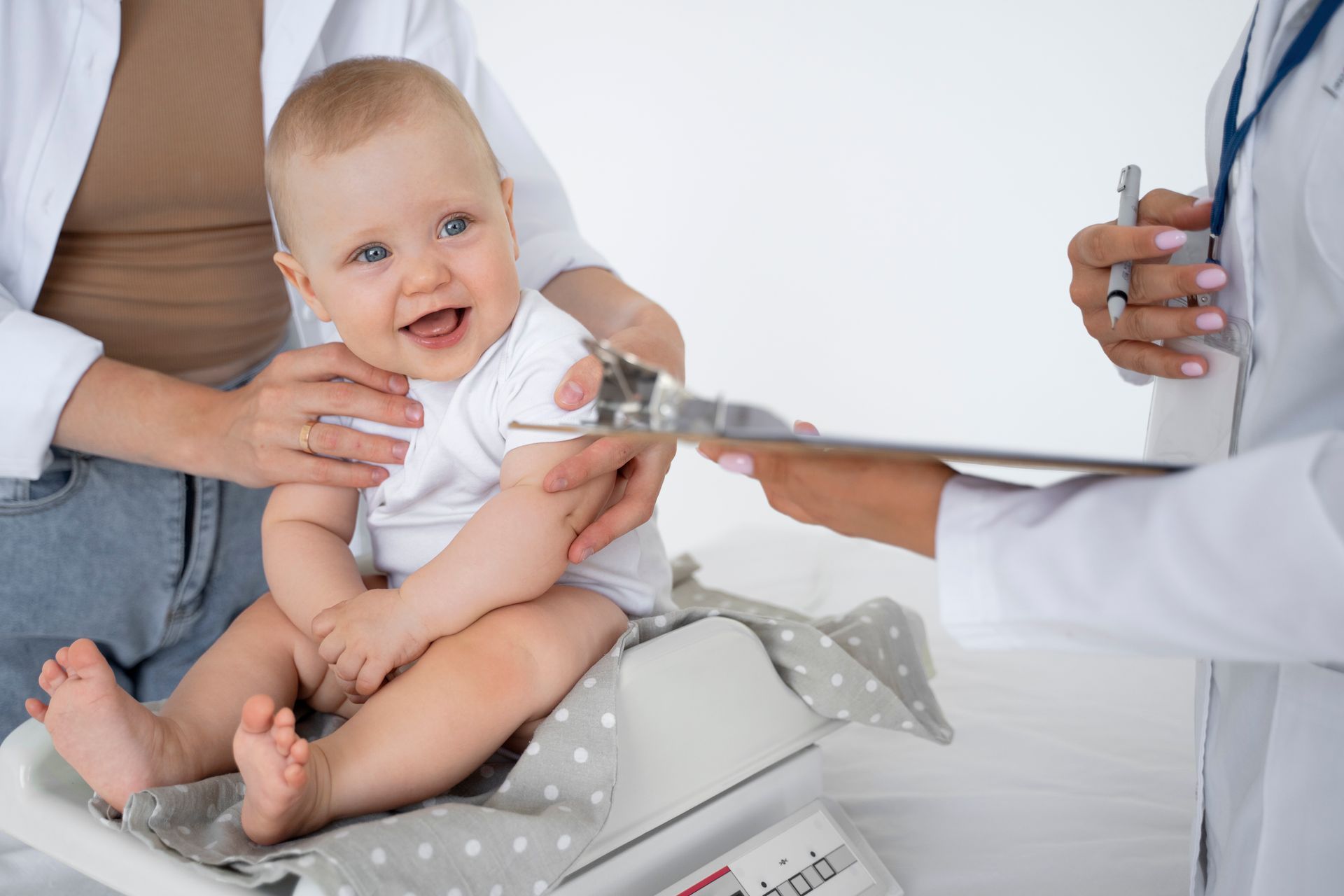What You Should Know About Autism in Children

April is Autism Awareness Month, a yearly observance that brings attention to autism spectrum disorders and other developmental disabilities. Raising awareness emphasizes the need for early detection, treatment, education, and research for autism in kids.
National Autism Awareness Month 2022 marks the 50th anniversary of this campaign, making it the perfect time to share relevant information about autism with parents, guardians, and anyone else interested. Read this article to gain more insight into ASD and other autism facts.
What Is Autism Spectrum Disorder?
Autism Spectrum Disorder (ASD) is a developmental condition or disability that causes behavioral, social, and communication difficulties that vary from gifted to severely challenged. Even though people with ASD don't look different from others, they may behave, interact, communicate, and learn differently from most of us. Some people with ASD need a great deal of help going about their day-to-day lives, whereas others need less.
Diagnoses of autism spectrum disorders now include several conditions that were once classified separately, including:
- Asperger Syndrome
- Autistic disorder
- Childhood Disintegrative Disorder
- Pervasive developmental disorder not otherwise specified (PDD-NOS)
Autistic Disorder Characteristics: Signs and Symptoms
A person with autism can be diagnosed at any age but is said to have a "developmental disorder" because the symptoms are most noticeable within the first two years of life. Autism occurs along a spectrum, which means that while each person experiences autism differently, specific difficulties are common to all. There can be mild symptoms to severe symptoms. It also manifests differently in young children than it will in older children.
Many of these signs appear gradually in children with autism, though some meet
developmental milestones at an average rate before their condition worsens. In some cases, ASD kids lose the skills they once had. Furthermore, people with ASD tend to show heightened sensitivity to external sensory stimuli, such as loud noises or bright lights.
Early Signs of Autism
Children or infants who exhibit several of the following characteristics may be at risk for an autism spectrum disorder:
- Has poor eye contact
- No cooing or babbling by 12 months
- Not smiling when you smile at them
- Failing to respond to their names by 12 months
- No gestures (grasp, point, wave) by 12 months;
- Does not speak a single word by 16 months
- Any deterioration of speech, babbling, or social skills
- Does not imitate others' actions and sounds like clapping
- No back-and-forth exchanges of sounds by 9 months
- Repetitive behaviors, like flapping hands, rocking the body, or lining up objects.
- Do not use two-word phrases independently (rather than repeating what someone says to them) by 24 months.
Characteristics of Autism Among Older Children
- Difficulty communicating with others.
- Repetition of words or phrases (echolalia)
- Inability to comprehend others' emotions
- Keeps to themselves- doesn't play with others
- May act without thinking about the consequences
- May become aggressive if things do not go according to plan
- Can be upset by small changes in the environment or routine
- Has trouble staying on topic or doesn't listen when spoken to
- Fixated on one activity (re-reading a book over and over again)
- Difficulties in establishing and maintaining good relationships with others
- Inability or unwillingness to share personal interests or hobbies with others
- Retardation in language development, such as trouble communicating or understanding others
Why Does Autism Occur and What Causes It?
There is no single cause of autism. Research suggests that genetic factors predominate, although environmental factors and prenatal stress may also play a role. Most scientists agree that the cause of autism spectrum disorder (ASD) lies in structural or functional abnormalities in the brain. In general, brain scans reveal autistic children have brain structures and shapes that differ from those of neurotypical children.
Other studies indicate that individuals with ASD exhibit abnormality in serotonin and other neurotransmitters. These abnormalities may contribute to autism by disrupting fetal brain development caused by defective genes that control brain growth and communication between brain cells. Environmental factors may contribute to this disruption.
Another pertinent point to note is the common misconception that vaccines cause autism. This idea is not accurate at all. No evidence exists that childhood vaccinations cause autism. Research is progressing toward identifying the causes of autism spectrum disorder (ASD), leading to better treatments.
Childhood Autism: How Is It Diagnosed?
You can use the M-CHAT (Modified Checklist for Autism in ToddlersTM) to determine if your child requires medical evaluation by completing the short online autism screening in minutes. When your answers indicate that your child is at high risk for autism, you should speak with their physician. Similarly, if you have any other concerns about your child's development, do not hesitate to address them. Contact your healthcare provider immediately to discuss an autism screening.
Diagnosis of ASD can be complex because it encompasses so many conditions. There's no medical test for ASD —doctors can diagnose it based on behavioral observations and developmental milestones.
During the assessment, the child will undergo a thorough developmental screening and evaluation as well as a physical and neurological exam. The doctor will examine the child's motor skills and social abilities to determine if there is anything unusual.
Moreover, the doctor will assess the child's behavior pattern and determine how well the child can maintain eye contact and engage in conversation. The doctor then requests to observe the child in their natural environment, like home or school. Furthermore, some healthcare professionals utilize diagnostic assessment tools to detect language and cognitive impairments.
Suppose signs of autism are found during this process; your doctor will request additional testing. These tests will rule out other disorders such as
ADHD, hearing loss, vision issues, mental retardation, or epilepsy. Once diagnosed with autism, your doctor will refer them will refer your child to a team of professionals specializing in autism in children, such as:
- Developmental pediatrician
- A child psychiatrist or psychologist
- Speech therapist
- Physical therapist
- Occupational therapist
Different Therapies and Interventions Are Available for Children with Autism
One thing is universally acknowledged: early intervention is crucial. There's no cure for ASD, but many therapies and interventions are available to help children with the condition live a fulfilling, independent life. It is important to remember that each child with autism is unique, and no individual treatment will work for all of them. Nevertheless, the treatment focuses on improving communication, social interaction, and behavior through various approaches. Here are a few examples:
- Applied Behavior Analysis (ABA)
- Floortime or developmental individual relationship-based model (DIR)
- Diet or Nutritional therapy
- Integrated play groups (IPGs)
- Speech and language therapy
- Medication treatment
- Social Skills Training
- Occupational therapy
- Educational support
Early Intervention Is Key!
Give your child the best chance of thriving even with autism! Early diagnosis and intervention, comprehensive treatments, and support for people with ASD and their families can make a big difference in the outcome. If you see signs of autism, don't hesitate to reach out to Sang Pediatrics! Call us at (559) 268-1737 or book an appointment online.










